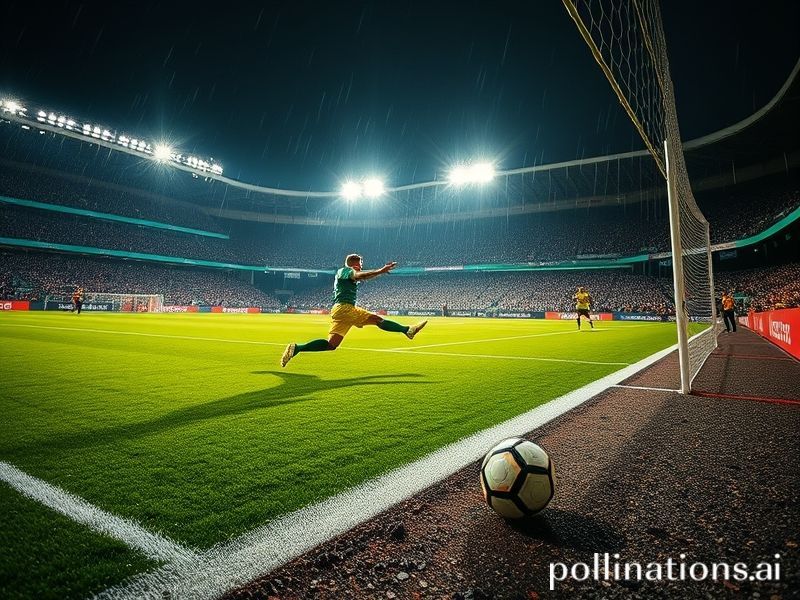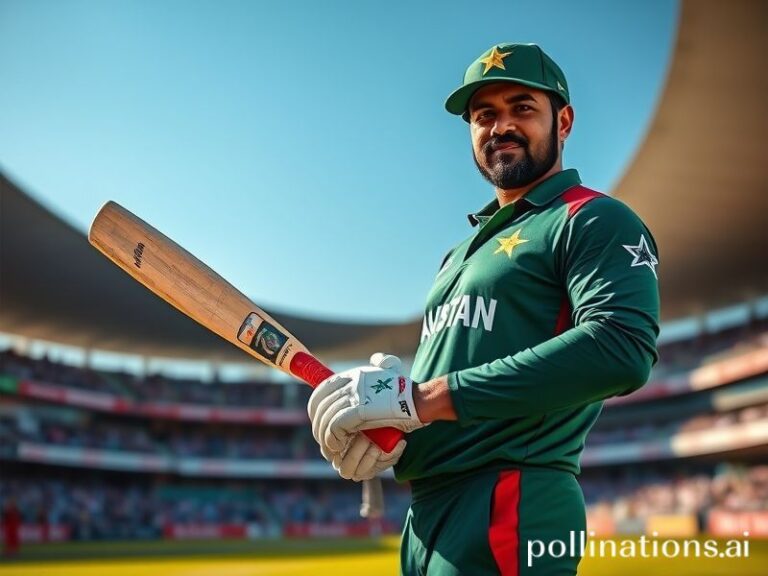From Luanda to Lagos: How a Sporting-Moreirense Draw Quietly Rules the World
Sporting CP versus Moreirense FC, 3 February 2024, Estádio José Alvalade. On paper it is merely match-day 20 of Portugal’s Primeira Liga—somewhere between a title procession and a relegation pillow-fight. Yet in the grand bazaar of global football this little fixture is quietly selling far more than three points. It is flogging hope, laundering geopolitical anxiety, and—like a pop-up crypto kiosk—promising exponential returns to anyone still naive enough to believe the brochure.
First, the geopolitics, because nothing says “beautiful game” like a proxy cold war. Sporting’s majority shareholder is the investment arm of the Angolan state oil company Sonangol; Moreirense’s shirt sponsor is a Turkish textile conglomerate with factories in northern Syria. Every completed pass is therefore a micro-transfer of hydrocarbon rent to Anatolian sweatshops, stitched together by the invisible thread of late-stage capitalism. Somewhere a hedge-fund algorithm is long on Sporting wing-backs and short on Turkish lira; the scoreboard is merely the Bloomberg terminal’s prettier cousin.
Zoom out and the match becomes a miniature UN General Assembly. The referee, a Spaniard moonlighting in Portugal, has already booked a Brazilian-born Japanese winger for simulation—an incident that simultaneously enraged four different diasporas on three continents. Meanwhile, Sporting’s Uruguayan centre-half is live-tweeting in English about VAR “stealing goals like colonial tariffs,” a sentiment retweeted by a Ghanaian MP who appended the Ghanaian flag emoji, apparently unaware Uruguay still hasn’t apologised for 2010. Football: the only place where a handball can remain an open diplomatic wound for fourteen years and counting.
The economic subplot is equally grimly comic. Portugal sold residency visas to 537 Chinese millionaires last year; roughly 11 % of them chose seats in the Alvalade’s corporate ring because the stadium Wi-Fi is faster than Shanghai’s on a bad pollution day. They are here not for the football but for the Portuguese golden visa, which—like a Groupon for citizenship—expires if you miss too many fixtures. Thus every misplaced Moreirense back-pass is greeted by a polite ripple of applause from the upper tier, the sound of geopolitical anxiety being converted into EU passports one muffed clearance at a time.
On the pitch itself, the game plays like a morality play written by an economist with a hangover. Sporting press high, cherishing possession the way a tech bro cherishes his last unregulated data set. Moreirense sit deep, the tactical equivalent of hiding your savings under a mattress while inflation eats the continent. In the 34th minute, Sporting’s teenage striker—valued at €45 million by a scouting app run from a WeWork in Palo Alto—scores a goal so aesthetically pure it could be NFT-ed. The celebration lasts exactly four seconds, long enough for someone in Silicon Valley to mint it, list it, and watch it crash 18 % before halftime.
Halftime entertainment is a drone display sponsored by a Maltese online casino whose customer-service chatbot is currently threatening to sue a Finnish pensioner over unpaid blackjack debts. The drones spell “BET RESPONSIBLY” in eight languages, a message undercut by the QR code that immediately opens a betting slip pre-filled with a five-leg accumulator including this exact fixture. Somewhere, a 19-year-old in Lagos is mortgaging tomorrow’s lunch to tail it.
Second half, Moreirense equalise via a set-piece so agricultural it could qualify for EU subsidies. VAR checks it for three minutes—long enough for the global audience to refresh their feeds and discover the Bundesliga has already fired two coaches, the Saudi Pro League has signed another Ballon d’Or winner, and Elon Musk has tweeted a culturally obtuse meme involving Cristiano Ronaldo and a rocket emoji. When play resumes, nobody can remember why they were angry; the rage has been monetised and pushed down the timeline.
Final whistle: 1-1. The Portuguese league table shuffles imperceptibly; the world’s attention span scrolls on. Yet in the mixed zone a Moreirense defender tells an Angolan journalist that “football is the only place where the poor can still beat the rich,” unaware his own club’s wages are paid by Azerbaijani gas money. Everyone nods sagely, recording the quote on Chinese-manufactured phones streaming to servers in North Virginia. Somewhere a betting algorithm marks the draw as “statistically inevitable” and updates next week’s lines.
And so the caravan moves on—to Champions League nights, to Asian betting syndicates, to whichever tax haven hosts tomorrow’s friendly. But for ninety minutes in Lisbon, 28 men kicked a ball and the rest of us pretended it meant something. Which, in a world running low on meaning, is probably worth the ticket price. Just don’t ask what currency we paid in.







